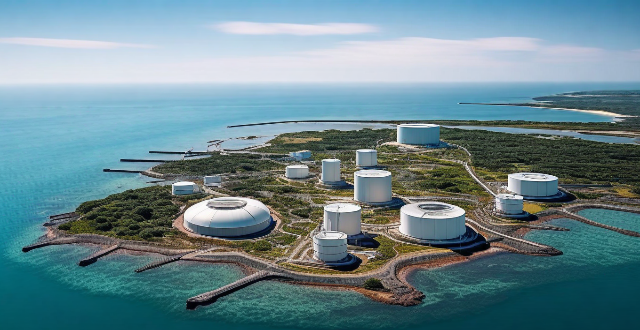The impact of greenhouse gas emissions on the environment includes climate change, air pollution, and ocean acidification. Climate change leads to rising temperatures, melting ice caps, and extreme weather events. Air pollution causes respiratory and cardiovascular diseases, while ocean acidification harms coral reefs and disrupts marine ecosystems. Reducing reliance on fossil fuels is crucial to mitigate these effects.

Impact of Greenhouse Gas Emissions on the Environment
Greenhouse gas emissions have a significant impact on the environment, leading to various issues such as climate change, air pollution, and ocean acidification. In this article, we will discuss the main effects of greenhouse gas emissions on the environment.
Climate Change
Climate change is one of the most pressing issues caused by greenhouse gas emissions. The increase in atmospheric concentrations of carbon dioxide (CO2), methane (CH4), and nitrous oxide (N2O) traps heat in the Earth's atmosphere, leading to global warming. This phenomenon has several consequences:
- Rising temperatures: Global temperatures have increased by approximately 1°C since the pre-industrial era, causing more frequent and severe heatwaves, droughts, and wildfires.
- Melting ice caps and glaciers: The melting of polar ice caps and glaciers contributes to rising sea levels, which can lead to coastal flooding and erosion.
- Extreme weather events: Climate change can also cause more intense hurricanes, typhoons, and cyclones, as well as heavier rainfall and snowfall.
Air Pollution
Greenhouse gas emissions also contribute to air pollution, which has negative effects on human health and the environment. Some of these effects include:
- Respiratory problems: Air pollution can cause or exacerbate respiratory conditions such as asthma, bronchitis, and emphysema.
- Cardiovascular diseases: Exposure to air pollution can increase the risk of heart disease, stroke, and other cardiovascular problems.
- Reduced visibility: High levels of air pollution can reduce visibility, affecting transportation safety and reducing outdoor activities.
Ocean Acidification
Ocean acidification is another consequence of greenhouse gas emissions, particularly CO2. When CO2 is absorbed by seawater, it forms carbonic acid, which lowers the pH of the ocean. This process has several harmful effects on marine life and ecosystems:
- Coral reef bleaching: Acidic waters can cause coral reefs to lose their vibrant colors and become more susceptible to disease and death.
- Shellfish growth: Acidic waters can interfere with the growth of shellfish and other organisms that rely on calcium carbonate to build their shells or skeletons.
- Food web disruption: As acidification affects key species like corals and shellfish, it can disrupt entire marine food webs and ecosystems.
In conclusion, greenhouse gas emissions have far-reaching impacts on the environment, including climate change, air pollution, and ocean acidification. To mitigate these effects, it is essential to reduce our reliance on fossil fuels and transition to cleaner energy sources. By taking action now, we can help protect the planet for future generations.